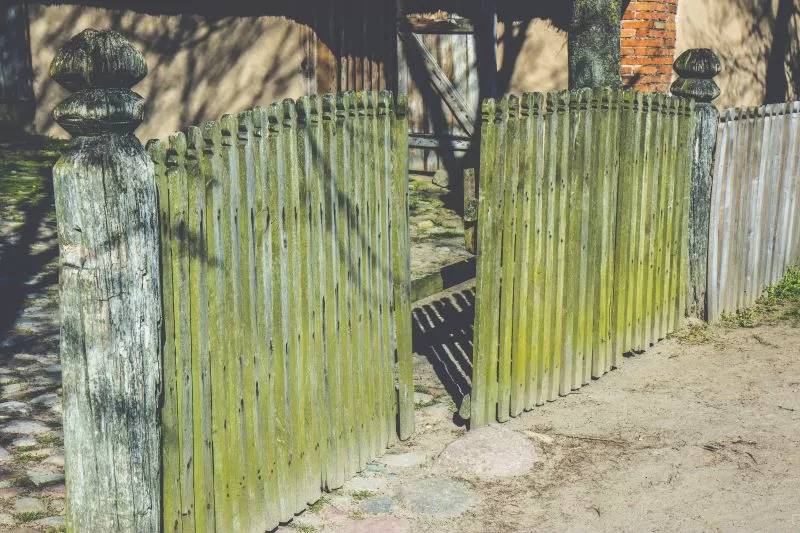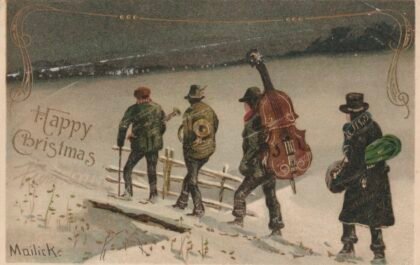
Jacob Quinn came to live at the ranch in the middle of August. The agreement he made with Aunt Maddie was that he would come live and work at the ranch until he was old enough to sign up for the military. In exchange, Aunt Maddie agreed not to press trespassing and vandalism charges for the night he tried to rob the Indian graves on the ranch. She also paid his hospital bills—but she didn’t tell him that—and began the process of looking into becoming his legal guardian, because Jacob Quinn was all alone in the world and he was only 16.
I wasn’t sure how I felt about it, especially at first. Life on the ranch had finally settled into being home for me, when suddenly here was someone who changed everything. It was like finally getting used to swimming in the ocean and getting slammed by a big wave out of nowhere that knocks all the breath out of you and leaves you half drowned.
Jacob wasn’t exactly good company. He was touchy and proud. He had a spiky shock of hair so blond it was almost white. It looked like he cut it himself with a dull knife. He had a spiky personality too, and a glare that could curdle milk. Before the accident, he’d been squatting in an abandoned shack left over from when Roosevelt Highway was being built. He wanted to go back there and walk to the ranch every day to work, but the snake bite had kept him in the hospital for two weeks and when Aunt Maddie brought him home he was still in rough shape. She insisted that he stay in the house with us until he was better. I know she wanted him where she and Mr and Mrs Calzada could keep an eye on him. I didn’t like it much but I understood why.
Jacob’s arm still looked awful. It was black and blue, fading to green and yellow, with a raw red scar down the middle. At the hospital they had to do surgery to cut out tissue that had been damaged by the rattlesnake venom. Jacob would always have that scar, and he still couldn’t fully close or open his fingers on that hand. He was told by the doctors that he was lucky not to have lost his whole arm, and the venom had been hard on his whole body, not just the arm. Recovery was going to take time. Whether he liked it or not, Jacob needed help, and Aunt Maddie was determined that he would get it.
That first week was a little bit like learning to live with an iceberg. Jacob hated being an invalid and hated anything he regarded as charity. He spent all of his time in his room, only coming out for meals at Aunt Maddie’s insistence, and then saying as little as possible. His misery was like a freezing fog. You could feel it all through the house, even when he wasn’t present. Aunt Maddie seemed determined to ignore it. She was kind, the way she always was, and left him alone.
I felt like I just couldn’t stand it. I wrote all about it to Kitty. I wrote to her every week, telling her all about life in Malibu, so she knew all about Jacob and the snake and everything. She didn’t always respond right away. Life at the camp in Manzanar didn’t leave her much time. Everyone there, even the kids, was busy trying to make some kind of a normal life for themselves, and they didn’t have much to do it with. Letters had to be written on the floor or on the doorstep—there wasn’t any furniture yet except for army cots, and the time had to be snatched during daylight, because there weren’t any lamps either, at least not in the part of the camp Kitty’s family were in.
Compared to what Kitty was going through, putting up with Jacob and his moods was hardly worth mentioning, but I felt like if I didn’t tell someone I would burst, and I didn’t want to complain to Aunt Maddie. And anyway, she knew, because she had to deal with it, too. “He’ll get over it, James,” she said. “Just give him a little time to thaw out.”
I tried staying away as much as possible. That was easy enough. The weather was perfect. There was the beach, and the horses and goats, and our tree fort, and lots of trails to explore in the canyon. Mr Zelle was busy with a music project. His beloved Durocar restoration was on hold, but I still saw him for piano lessons every week, and I could always go to Jessie’s house, but I thought I might prefer the freezing fog at home to the madness next door.
The Lawrences were our nearest neighbors, but their house was very different from my aunt’s. On the outside it looked a bit like the illustration of Toad Hall in the copy of The Wind in the Willows Aunt Maddie sent me when I was little. It was big and tall, with a steeply peaked roof, lots of windows with little diamond-shaped panes, and fancy iron hinges on the doors and shutters. Inside, it was an odd mix of antique furniture and modern paintings, the kind where you can’t be sure whether it’s just shapes or if it is meant to be people.
It would have all been formal and forbidding, except that the whole house was scattered with dog beds, dog toys, and dogs—the Lawrences had four: a black and white polka-dotted great Dane about the size of one of Aunt Maddie’s horses named Augustus, a big black poodle named Aubergine, a medium-sized foxhound called Leo, and a small white terrier with the wildly inappropriate name Puff. He was the boss dog, and ran the show: a tiny, fierce dictator. Augustus was terrified of him. Only Jessie’s baby brother had more influence over the other residents of the house. His name was equally incongruous—Alexander Julien Lawrence—but at least he would probably grow into it. Now he was just called “Lex.” Mr Lawrence said Lex had a future as an operatic tenor. Jessie said he would do better as a professional hog caller. He had a very loud voice for such a small baby.
Mr Lawrence was a movie director. Like Aunt Maddie, he had done well during the silent era. Jessie’s stepmother was an artist. She drifted dream-like around the house, trailing silk scarves and added a colorful assortment of pastel crayons and half-finished sketches to the general disorder in the house. She wasn’t at all the way I envisioned a stepmother to be. She was pretty and kind, but in a sort of absent way, like she was always thinking of something else. Maybe she was.
There were lots of distractions at Jessie’s house. It was always filled with her parents’ friends, who came and went at all hours. They were artists and movie people, and they were always drinking cocktails and playing croquet like people in “Alice in Wonderland,” or huddled in the living room in a cloud of cigarette smoke arguing about art or the war.
I knew some of them from Aunt Maddie’s Sunday afternoon gatherings, but while my aunt’s gatherings were orderly and I always felt welcome even if I didn’t understand what was being talked about, there was a feeling here of a strange kind of chaos that was part gin-fueled hilarity and part fear of what would happen if the party ended and there wasn’t anything to fill the emptiness when the last guest left. It didn’t bother Jessie, she was used to it, but it made me uncomfortable, and all the time I kept thinking about Jacob.
Kitty’s reply came quickly, and she saw right to the heart—she always did.
“I think Jacob is just plain scared,” she wrote. “Terrified. I know I am, and it makes me angry sometimes, too, living with that all the time. He’s still feeling awful from the snakebite and his life has suddenly been turned upside down. Going from the life you know to a strange place where everything is different and no one sees you for who you are is horrible. And it is worse when you have no way to protest or stop it from happening. It feels like nothing is ever going to be right again, and that there is no such place as home anymore. At least I have my family, but he doesn’t even have that.”
Kitty’s letter helped me think about Jacob a little differently, but Jessie wasn’t moved.
“He’s an oaf, James. One of those trolls that live under bridges in stories and eat goats and travelers.”
“But maybe trolls only eat people because they haven’t got any other choice,” I said, troubled.
“Don’t you believe it,” she said. “Trolls eat people because they are trolls.”
Jacob sure didn’t do anything to prove Jessie wrong over the next few days, but I kept thinking about what Kitty had written, and how he was alone and in an unfamiliar place and feeling ill. The ranch was home to me now and I loved it, but I had felt strange when I arrived. Jacob’s life had also been turned upside down, but even more suddenly than mine was, and he didn’t know any of us. I had been happy to come, or at least, happy to have a home to go to. He didn’t want to be here, but had no choice.
One of the things Aunt Maddie and I did every month was send Kitty and her family a box with things like soap and ink and paper and stamps and handkerchiefs, stuff that was necessary and hard to get, or that we thought might bring them a little comfort. I began to wonder if there were things that would help Jacob feel more at home. I picked out a really great adventure book I’d been reading called King Solomon’s Mines—it was all about explorers and ancient treasure in Africa. It was really Aunt Maddie’s book, but I didn’t think she would mind. I added a pack of chewing gum, a bag of marbles—good ones that gave me a momentary pang to part with—and some comics. They were good ones, too, about Captain America fighting the Red Skull. Reading them was a special treat for me. When I lived in Illinois, my Aunt Charlotte used to say that comics were ‘the devil’s books’ and wouldn’t let them in the house, but Aunt Maddie didn’t mind them. Feeling sort of like Cap myself, I took a deep breath and knocked on Jacob’s door.
“I thought you might like these,” I said, before I lost courage. “It’s awfully boring being sick.”
He looked pretty terrible—pale and gaunt, with red eyes like he might have been crying. I pretended not to notice. “Is there anything else you might like?” I asked. “There are lots and lots of good books in the house, games and puzzles, too, and if you leave the door open, I bet Mouse would come and keep you company—he’s Aunt Maddie’s cat.
Jacob shrugged. “I don’t need anything,” he said.
I nodded and turned to go, feeling a bit deflated. I almost missed his muttered “thanks.” Maybe Jessie was wrong and he wasn’t a troll after all. Maybe this was a start.




